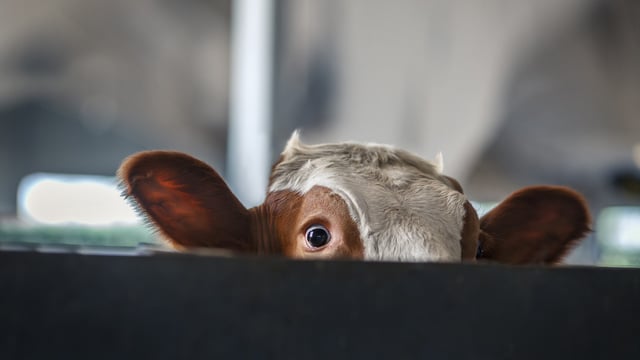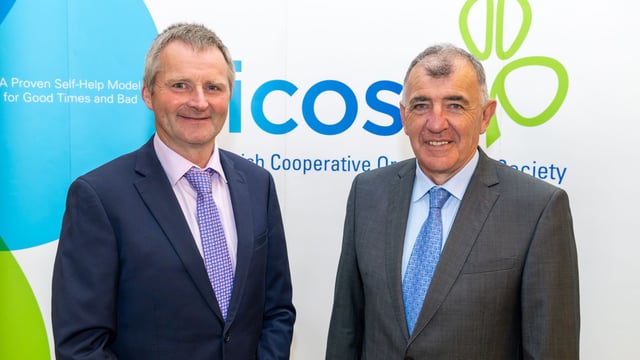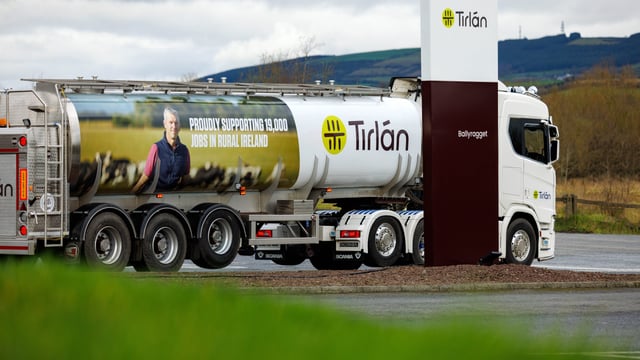Minister: New TB measures funding yet to be decided as budget talks continue
Funding allocations for revamped TB measures are still being negotiated, Minister for Agriculture, Food and the Marine Martin Heydon has said.
Speaking as he launched the new TB action plan at an event at the Department of Agriculture, Food and the Marine campus in Backweston, Co. Kildare on Tuesday (September 9) afternoon, the minister did not confirm how much he is seeking for the TB programme in Budget 2026.
He said that to the end of July this year, €61 million has been spent on the TB programme.
He said the cost of the programme has been "growing exponentially" over recent years.
The TB programme cost €101 million last year, he said.
Budget negotiations
"Ultimately, we need to make the investment now to save the cost that there is on farmers and save the cost on the exchequer and to allow myself and future ministers for agriculture not have to spend as much on TB as it has cost," Minister Heydon said.
"In previous years, funding for bovine TB has come out of the overall agricultural budget. I'm in my budget negotiations, as all other ministers at cabinet are."
The minister said he has been engaged with the Department of Public Expenditure on the significance of the new TB measures and the need for funding in order to "get back on the road to eradication" of the disease.
"I continue to be engaging with the department on all elements of my budget in the coming weeks up until October 7," he said.
"Obviously TB is a key priority going into next year and those negotiations continue.
"DAFM only ever gets so much in a budget, in comparison with all other departments, and this [TB] has taken a sizeable chunk of that.
"In terms of the costs and the impact of this, that forms part of my budget ask for next year in terms of my priorities."
Cost implication
Minister Heydon said that the more reactors there are, the more will be spent "compensating farmers for the loss of their animals".
"That is why there is a strong economic reason both from the exchequer funding but also from the farmer's perspective to get a handle on this."
TB measures to be implemented may be prioritised based on the funding that is allocated to DAFM in Budget 2026.
"Ultimately I will negotiate for as good a deal as possible I can get. When I get that, I have to set my key priorities for the year ahead," the minister added.
'Wise investment'
He said overall the proposals announced today will "have a significant cost implication down the line", and "I need to manage that within my budget".
"The interventions I make now will lead to, in the short-term, an increase in the amount of reactors which, when you consider compensation and different measures, will have a cost implication," the minister said.
"It absolutely is a wise investment to make because ultimately, once we reach that point of stabilisation in the coming years, we then will see a significant drop and a downward trajectory in the reactors and in that space we then can talk about eradication again very seriously."
The minister said on Tuesday that farmer compensation is not likely to be increased as other measures towards eradication will be the focus of funding received for the TB programme.
New TB plan
The plan announced today contains five main measures under which there are various different actions.
The minister said the measures mark a "reset" in the approach taken to control TB.
The new plan seeks to help herds remain free of the disease, detect infection as early as possible, and avoid further cases where there is a breakdown.
The action plan has a focus on reducing the impact of high-risk animals in spreading the disease, along with wildlife measures and improving on-farm biosecurity.
The minister said there is a sense of "hopelessness" amongst farmers, who feel they are in a "never-ending cycle" of having reactors.
"These measures will change how that plays out for them as they're implemented in the coming weeks and months," he told Agriland.
"Some of the measures around communication, and around better information, start immediately."





